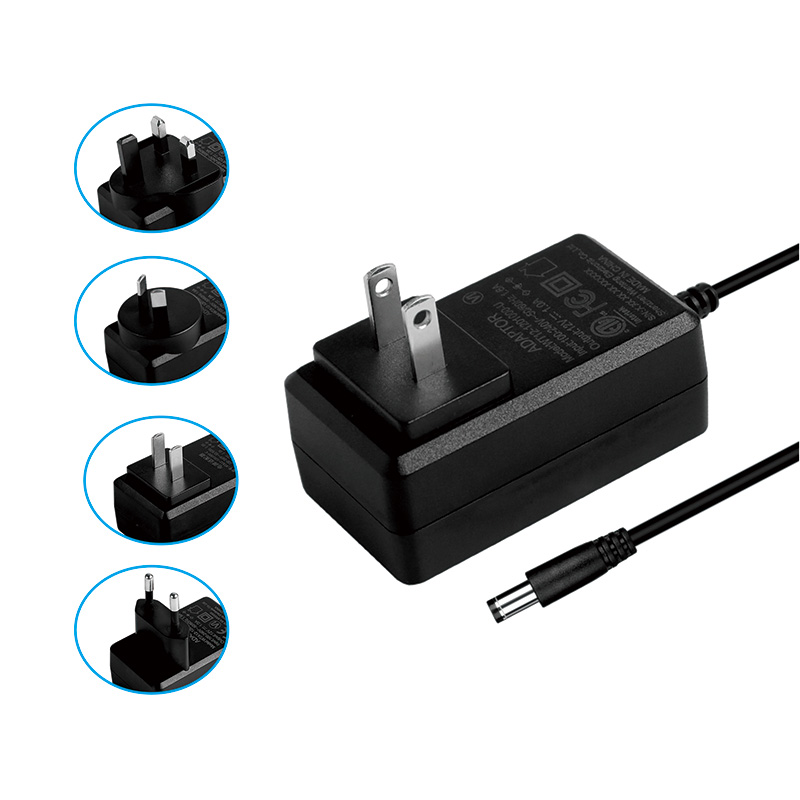Understanding Power Adapters: Essential Tools for Modern Technology
2025-01-21
In our tech-driven world, where gadgets, devices, and electronic systems power much of our daily lives, the role of a power adapter cannot be overstated. Whether you're charging your smartphone, powering up a laptop, or ensuring that industrial machinery runs smoothly, a power adapter is the unsung hero that makes it all possible. But what exactly is a power adapter, and why is it so important in modern electronics?
In this blog, we'll dive into the essential role of power adapters, their types, and how to choose the right one for your needs.
What is a Power Adapter?
A power adapter is an electrical device that allows one to convert the electrical energy from one form to another, typically from alternating current (AC) to direct current (DC), to match the voltage and current requirements of a specific device or system. It ensures that your electronics receive the proper power input needed for optimal operation, protecting both the device and the power source from damage.
Essentially, power adapters are the middlemen between your electrical outlet and your gadgets. Without them, many modern devices—like laptops, phones, and even some home appliances—wouldn’t function, as their built-in power components are not designed to work directly with standard AC outlets.
Types of Power Adapters
Power adapters come in many shapes and sizes depending on the requirements of the devices they serve. Below are some of the most common types:
1. AC to DC Power Adapters
- Description: These are the most common types of power adapters, converting the AC electricity from a wall outlet into DC electricity, which is what most modern electronic devices need. AC to DC power adapters are used for everything from smartphones to laptops.
- Example Use: Powering smartphones, tablets, and laptops.
2. Universal Power Adapters
- Description: Universal power adapters are versatile, offering multiple output options. They typically come with adjustable settings to accommodate various devices with different power requirements. This makes them a great choice for travelers or those with multiple devices that use different charging specifications.
- Example Use: Charging laptops, cameras, or devices with varying voltage and connector types.
3. Laptop Power Adapters
- Description: Laptop adapters are specially designed to provide the correct voltage and amperage to power a laptop. These adapters often include a connector that fits into the laptop’s power input port.
- Example Use: Powering laptops, including Windows, MacBooks, and gaming laptops.
4. AC Power Adapters
- Description: These adapters are used to provide AC power from a standard electrical outlet to devices that require AC power. These are less common than DC adapters but are still essential in applications where devices need to operate on AC.
- Example Use: Powering small household appliances like fans, lamps, and air conditioners.
5. Car Power Adapters
- Description: Car power adapters are designed to allow devices to be powered via a vehicle's 12V DC outlet, also known as the cigarette lighter socket. These adapters often feature a USB port for easy charging of devices like smartphones or tablets while on the go.
- Example Use: Charging phones, GPS devices, and powering small electronics in a car.
6. Power Supply Units (PSUs)
- Description: Power supply units are larger adapters typically used for higher-powered electronics, such as desktop computers, industrial machinery, or home entertainment systems. PSUs can convert both AC and DC power and distribute power to multiple components within a system.
- Example Use: Powering desktop PCs, servers, and networking equipment.
Why are Power Adapters Important?
Power adapters play a crucial role in maintaining the safety, efficiency, and functionality of modern electronic devices. Here are some reasons why they are so vital:
1. Safety
One of the primary functions of a power adapter is to protect both your device and the electrical system it’s plugged into. Without an adapter, devices might be exposed to power surges, spikes, or incompatible voltages that could damage sensitive components. Power adapters are designed with built-in protections, including overcurrent protection, voltage regulation, and short-circuit protection, to prevent electrical mishaps.
2. Efficiency
Power adapters ensure that devices receive the precise amount of power they need to operate efficiently. Devices are designed to work at specific voltages and currents, and a compatible adapter ensures that they run optimally without drawing excess power or wasting energy. This contributes to longer device lifespans and reduced energy consumption.
3. Convenience
Power adapters make it possible to use your devices in various environments. Whether at home, at work, or while traveling, adapters allow you to plug into different power sources without worrying about compatibility issues. Universal adapters, for example, enable you to power a range of devices without needing separate adapters for each.
4. Portability
Many power adapters are lightweight and compact, making them easy to carry around. This is especially true for laptop power adapters and travel adapters, which allow users to stay connected to their devices no matter where they go.
5. Customization
In many cases, you can choose power adapters that are tailored to your specific needs. From specialized adapters for industrial applications to chargers for specific devices, the variety of available options ensures that you can find the perfect adapter for your requirements.
Choosing the Right Power Adapter
Choosing the right power adapter is crucial to ensure the safety and performance of your devices. Here are some factors to consider when selecting one:
1. Voltage and Current Compatibility
- Every device operates at a certain voltage and current, and using an adapter that doesn’t match these requirements can cause the device to malfunction or even be damaged. Always check the voltage (V) and current (A) requirements of your device and ensure the adapter matches those specifications.
2. Connector Type
- Power adapters come with different types of connectors, so make sure the adapter has the right plug to fit your device’s power input. In the case of laptops, many manufacturers have their own proprietary connectors, so ensure that you get the correct one.
3. Power Rating
- Power adapters are rated for specific wattage, which is determined by the voltage and current they provide. If your device requires more power than the adapter can supply, it may overheat or fail to work correctly. Make sure the power adapter provides sufficient wattage for your device.
4. Certifications and Safety Features
- Look for power adapters that are certified by relevant safety standards organizations (such as UL or CE) to ensure they meet safety guidelines. Quality adapters will also feature built-in safeguards, such as overcurrent protection, thermal regulation, and surge protection.
5. Brand and Quality
- It’s always best to choose a power adapter from a reputable manufacturer. While generic adapters may be cheaper, they may not meet the same quality and safety standards as those made by well-known brands.
Conclusion
The power adapter is a crucial component in ensuring that your electronics run smoothly, safely, and efficiently. Whether you're charging your phone, powering your laptop, or running complex industrial systems, the right adapter makes all the difference. By understanding the different types of power adapters and their specific uses, you can make informed decisions about the best adapter for your devices.
When selecting a power adapter, always prioritize safety, compatibility, and quality to protect both your devices and your electrical systems. With the right power adapter, your devices will continue to run effectively, providing you with the functionality and convenience you need in today’s connected world.



